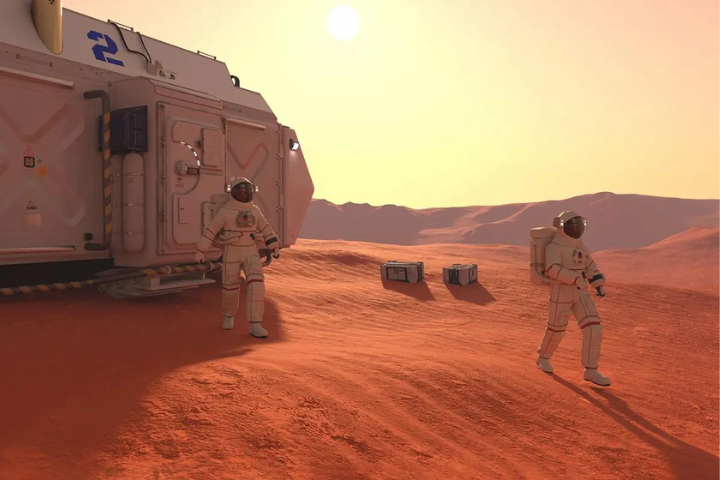In a startling revelation, renowned biologist Dr Scott Solomon, who is from Rice University in Texas, has warned that humans living on Mars may undergo drastic physical transformations, including turning green and losing their eyesight. Dr. Verseux, a leading expert on the colonization of Mars, presented his findings at a recent conference, shedding light on the potential challenges of long-term human habitation on the Red Planet.
Adapting to Martian Conditions
Dr Scott Solomon’s research suggests that the harsh Martian environment, characterized by low gravity, intense radiation, and limited resources, could trigger significant physiological changes in humans over time. These adaptations, while necessary for survival, may result in unintended consequences that could profoundly impact the appearance and functioning of the human body.
One of the most striking predictions made by Dr. Scott is the possibility that humans living on Mars could develop a greenish hue to their skin. This change, he believes, may be a result of the body’s attempt to produce its own food through a process similar to photosynthesis. “By incorporating chloroplasts into their cells, Martian colonists could potentially produce their own nutrients, reducing their reliance on limited food supplies,” explained Dr. Verseux.
Loss of Eyesight: A Trade-Off for Radiation Protection
Another concerning prediction is the potential loss of eyesight among Martian colonists. Dr. Scott suggests that the high levels of radiation on Mars could lead to the development of protective pigments in the eyes, similar to those found in certain deep-sea creatures. However, this adaptation may come at the cost of visual acuity, potentially rendering Martian colonists blind.
The concept of “reverse terraforming,” where humans adapt to the Martian environment rather than transforming Mars to suit human needs, is a central theme in Dr. Scott’s research. He argues that this approach may be more feasible and sustainable in the long run, but it comes with significant risks and uncertainties.
As the prospect of human colonization on Mars becomes increasingly realistic, Dr. Scott’s warnings serve as a reminder of the challenges and potential consequences that await future Martian settlers. He emphasizes the importance of further research and preparation to mitigate the risks associated with long-term human habitation on Mars.




GIPHY App Key not set. Please check settings